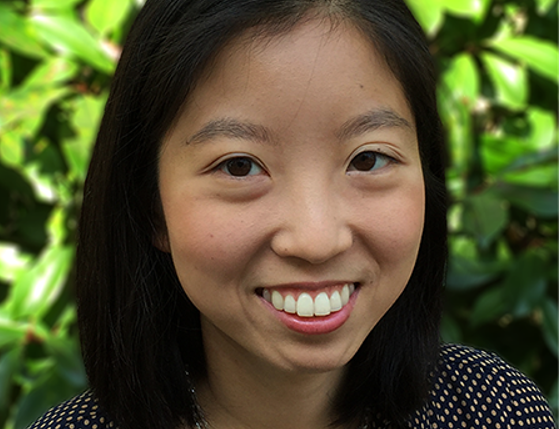A Conversation with Dianne Xiao, PhD, 2017 Arnold O. Beckman Postdoctoral Fellow
Currently: Assistant Professor, Dept. of Chemistry, University of Washington
What inspired you to apply for the Arnold O. Beckman Postdoctoral Fellowship?
I heard about it from a labmate, and it seemed like a great opportunity. As an inorganic chemist interested in energy and sustainability research, there were very few funding options available. While I did submit a fellowship application to the NIH, my proposed research was so far outside their scope it was never reviewed! I am so grateful for this program, which supports young scientists working on important and fundamental problems in chemistry outside the traditional NIH areas of interest.

What was your research focused on? Please note any significant results.
My postdoctoral research focused on developing new ways to use carbon dioxide for commodity chemical synthesis. Using a very simple solid base catalyst, we developed a cycle that converts two low-value and inert feedstocks -- CO2 and aromatic hydrocarbons -- into more valuable carboxylic acid derivatives.
Did your AOB Postdoc research lead to unexpected findings?
My work built off earlier findings in the lab, which used similar chemistry to convert monocarboxylate salts into dicarboxylates using CO2 and a simple carbonate base. For a long time, we assumed that carboxylate salts or co-salts were necessary for the reaction to work. It was very surprising and exciting that the same chemistry could occur on a solid surface with neutral, gas-phase substrates like benzene.
How did the experience change your thinking about science and conducting research?
My postdoctoral advisor, Prof. Matt Kanan, has absolutely no fear about switching fields in order to tackle grand challenges. I was definitely inspired by that. It showed me that it's never too late to learn something totally new, and that we shouldn't limit ourselves to our prior training.
What effect did the AOB Postdoctoral Fellowship have on your career?
Outside of supporting my postdoctoral research and providing scientific freedom, the fellowship and the Beckman symposium introduced me to so many amazing peers and mentors that I still reach out to for advice. It's also great for professional development. I've heard a lot of great things about recent topics covered at the Beckman symposium, such as mental health and mentorship.
Do you have any advice for our current Beckman Awardees?
A postdoc is a great time of learning and growth, but there is also a huge pressure to succeed that can lead to stress, anxiety, and overwork. I think the only advice I have is to be kind to yourself. Take time to do things you enjoy outside of work, and try not to let research progress influence your sense of self-worth. This is advice for myself too!
Any additional thoughts?
Thank you for supporting so many early career scientists!


